Does ESPN Have Room for Free Speech and ‘Monday Night Football’?
Popular sports commentator Bill Simmons was suspended by ESPN for violating editorial standards -- or was it because he criticized the NFL, which happens to have a $15 billion contract with the network?Popular sports commentator Bill Simmons was suspended by ESPN for violating editorial standards—or was it because he criticized the NFL, which happens to have a $15 billion contract with the network?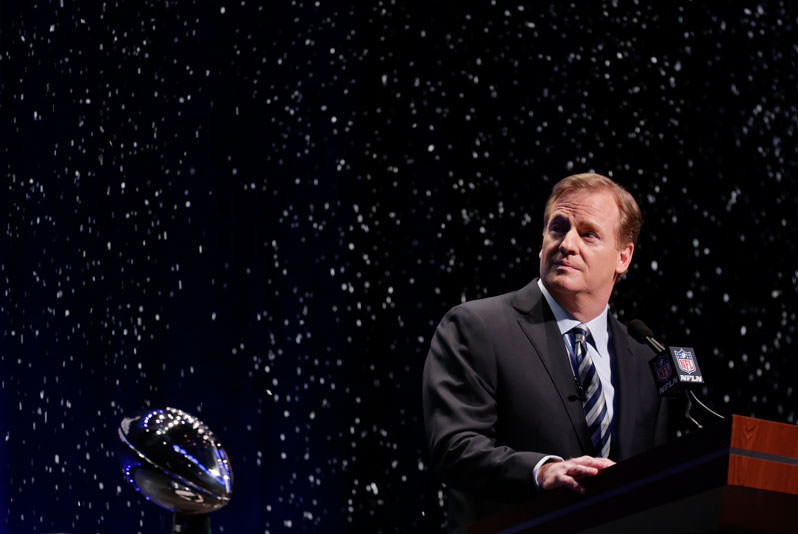 NFL Commissioner Roger Goodell. AP/Charlie Riedel
NFL Commissioner Roger Goodell. AP/Charlie Riedel
“Freedom of the press,” as A.J. Liebling famously wrote, “belongs to the man who owns one.”
Bill Simmons found that out on Sept. 24 when ESPN suspended him for three weeks for calling NFL Commissioner Roger Goodell a liar during his popular podcast, which was downloaded 32 million times last year.
But no, that can’t be true; surely the columnist knew the limits of his freedom well before his Goodell rant. Simmons, after all, has been suspended twice before by ESPN for controversial comments. Near the end of his spiel, you’ll hear Simmons say, “I really hope somebody calls me or emails me and says I’m in trouble for anything I say about Roger Goodell because if one person says that to me, I’m going public. You leave me alone. The commissioner is a liar, and I get to talk about that on my podcast.”
The general consensus seems to be that Simmons lost his temper. I disagree. I think, as another Bostonian named Henry James once phrased it, he found his temper. I think Simmons knew exactly what he was doing.
Time out. For those who have spent the last couple of weeks focusing on the Islamic State and Ebola, Simmons’ tirade about the NFL commissioner had to do with the tape from an elevator in an Atlantic City casino recorded in February that showed Baltimore Ravens player Ray Rice brutally knocking out his then-fiancée (now wife) with a punch to the head. At the time of the incident, a tape recorded outside the elevator showed Rice dragging his unconscious fiancée out of the elevator, and Goodell’s decision at the time of the incident was that Rice would be punished with a two-game suspension, which seemed almost ridiculously lenient by any standards.
But if Goodell saw the second tape before announcing Rice’s punishment — and we do know that his office was in possession of the second tape — then he was clearly trying to whitewash the case and minimize the bad publicity for Rice, the Ravens and the league.
After the second tape surfaced, there was a huge public uproar, after which Goodell apologized, saying that he “didn’t get it right” and announcing that Rice was suspended “indefinitely.” (“Indefinitely” in the NFL usually means a year.) The Ravens went even further and terminated Rice’s contract.
The story took on a new dimension on Sept. 22, when Simmons said during his podcast not only what most fans and sportswriters seemed to be thinking but what many had said out loud: that Goodell was lying when he said that he did not see the elevator tape when he first determined Rice’s penalty. For instance, ESPN’s irascible Keith Olbermann, who had been calling for Goodell to step down, said that this was the only way for the league “to restore just the slightest credibility to the den of liars.” Deadspin determined that Olbermann “annihilated” Goodell by saying the commissioner was “an enabler of men who beat women.”
ESPN took no action against Olbermann. Simmons was not only suspended for three weeks, but forbidden to write his columns or use his Twitter account. There’s no report as yet about whether or not Simmons’ contract forbids carrier pigeons.
What was ESPN’s reason for suspending Simmons? The network never actually said. Its full statement released to the media was “Every employee must be accountable to ESPN and those engaged in our editorial operations must also operate within ESPN’s journalist standards. We have worked hard to ensure that our recent NFL coverage has met that criteria. Bill Simmons did not meet those obligations in a recent podcast, and as a result we have suspended him for three weeks.”
But what exactly about Simmons’ podcast did not meet ESPN’s “journalist standards”? His potty-mouth language? Not likely. After paying Simmons a reported $3 million a year for the last four years (his contract expires in 2015) for his writing, heading its Grantland website, hosting “The B.S. Report” and cohosting “NBA Countdown,” ESPN just discovered that he likes to use naughty words?
Everyone in the sports journalism community, of course, suspects the real reason that Simmons was suspended: The NFL has a $15 billion contract with ESPN to air “Monday Night Football” through the 2021 season, and the most powerful league in sports doesn’t like having its most visible representative branded a liar by one of the most influential sportswriters in the country.
ESPN, through senior vice president for communications Chris LaPlaca, has denied that the business connection between the network and the NFL was a factor in its decision to suspend Simmons, but he did it rather quietly in an email to The Washington Post, the full contents of which have not been published.
This is not the first time the NFL has flexed its steroid-pumped muscle. In February 2004, ESPN canceled a popular and critically acclaimed series, “Playmakers,” after only one season. An explanation was never offered, but to many it was obvious that the league owners were offended by the portrayal of sex and drug use by many players. Last year the NFL was openly accused of pressuring ESPN into dropping its participation in “League of Denial,” the PBS investigation into the NFL’s handling of head injuries to players.
Documentary filmmaker Sean Pamphilon, director of “The United States of Football,” had a first-look option on his film on the devastating effect of pro football injuries, but Pamphilon told me in an interview, “When ESPN saw the final cut of ‘The United States of Football,’ they shook their heads. Ultimately, they rejected the film, and I’m glad they did. As it turned out, we didn’t have to compromise anything.”
So far, at least, the NFL’s clampdown on Simmons seems to have achieved one obvious goal: No one else at ESPN has picked up the banner in Simmons’ defense. For that matter, few journalists or TV commentators have bothered to check in at all, probably out of fear of losing their publication’s or network’s access to a league whose games currently run on CBS, NBC and Fox, in addition to ESPN.
Interestingly, a handful of college newspapers, typified by the University of Houston’s The Daily Cougar, are among the only publications to have taken a stand in strong support of Simmons’ First Amendment rights (though it should be noted that Simmons calling Goodell a liar is not really a free speech issue but an employer-employee issue).The Daily Cougar’s Oct. 8 story was headlined “ESPN Favors NFL Over Freedom of Speech.”
Even the late night talk show hosts, who might be expected to jump on such red meat with a relish, have said almost nothing, with the exception of ABC’s Jimmy Kimmel, for whom Simmons wrote jokes from 2002 to 2004. Kimmel tweeted: “If it’s possible to be a news operation & do business with those you cover, it’s possible to be a journalist AND a commentator.” (It should be noted that Kimmel’s network, ABC, is owned by Disney, which also owns ESPN.)
There may be something else in the sports media’s relative silence concerning Simmons. He is brash and often crass — look no farther than the Goodell podcast for evidence — in the manner of the radio and TV shock-jock sports celebs of the last couple of decades. But Simmons is both smarter ad tougher-minded, and he has become so popular and so wealthy in such a short time that a certain amount of resentment from the old guard sportswriting establishment is inevitable. Simmons alone, among the under-50 sports crowd in this profession, has mastered the art of social media and used digital technology beyond anything dreamt of in even Bob Ryan’s prime, let alone Red Smith’s. And Simmons doesn’t even need print; he might not even ESPN.
Now that Simmons has returned, all of this may be just a prelim. Goodell has shown no signs that he’s going to step down from his job, and Simmons has given no indication that he’s in a mood to let up. Is it likely that the man who has pushed ESPN three times into suspending him will stop pushing the issue?
Simmons’ return puts him in a position to be a truly heroic character. There are people who have taken on the NFL and those who have taken on ESPN, but I can’t think of anyone with the guts to try both.
There are rumors that Simmons is ready to leave ESPN and strike out on his own, which could mean starting his own website. TheBigLead.com speculated on Sept. 26 that Simmons had been spending much time in Hollywood, possibly pondering a “decamp from ESPN to a venture-capital backed solo operation with contributions from his West Coast buddies Jimmy Kimmel and Adam Carolla.”
Simmons is probably the first sportswriter ever in a position to do something like this, though a handful of writers from Andrew Sullivan to Glenn Greenwald have found success with independence. If Bill Simmons really wants to go public, to be left alone, and to enjoy the freedom of the press, he can — by owning one.
Your support matters…Independent journalism is under threat and overshadowed by heavily funded mainstream media.
You can help level the playing field. Become a member.
Your tax-deductible contribution keeps us digging beneath the headlines to give you thought-provoking, investigative reporting and analysis that unearths what's really happening- without compromise.
Give today to support our courageous, independent journalists.

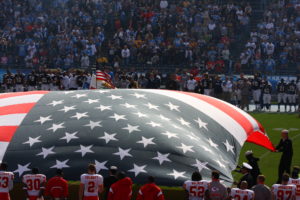
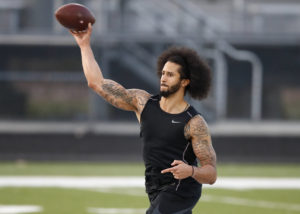
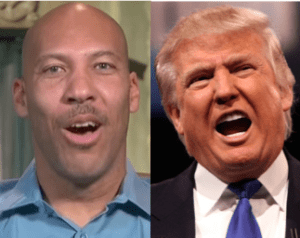

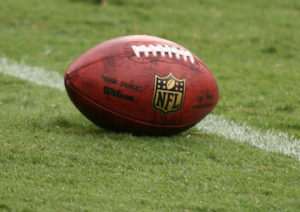


You need to be a supporter to comment.
There are currently no responses to this article.
Be the first to respond.